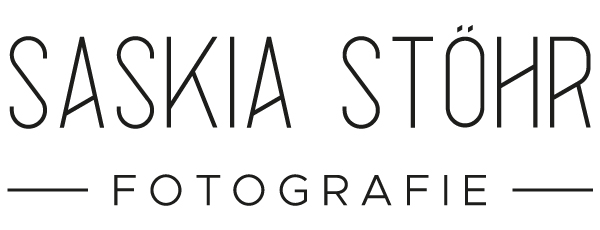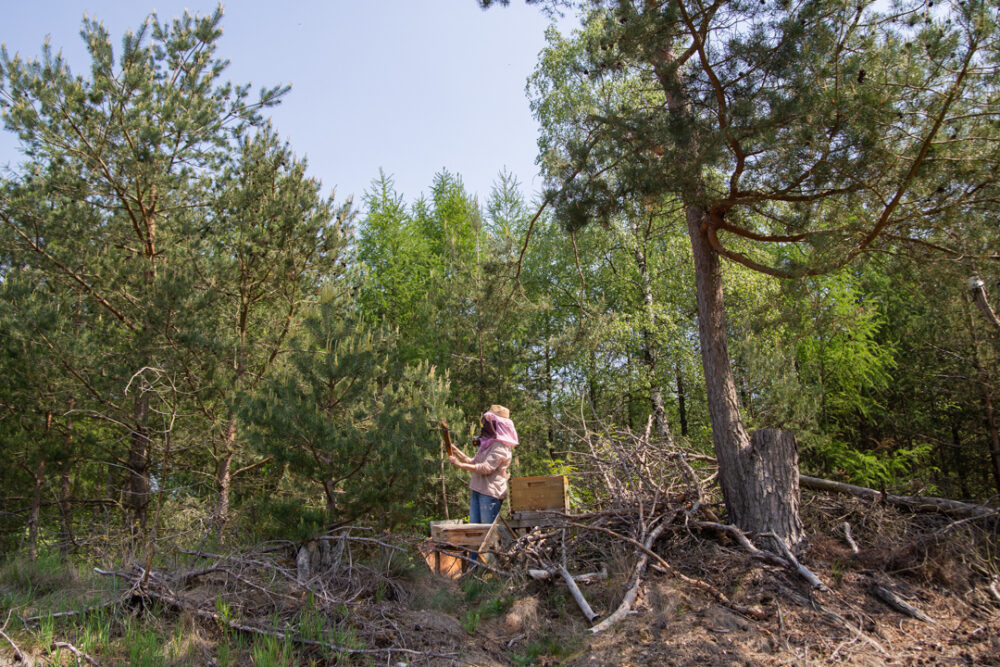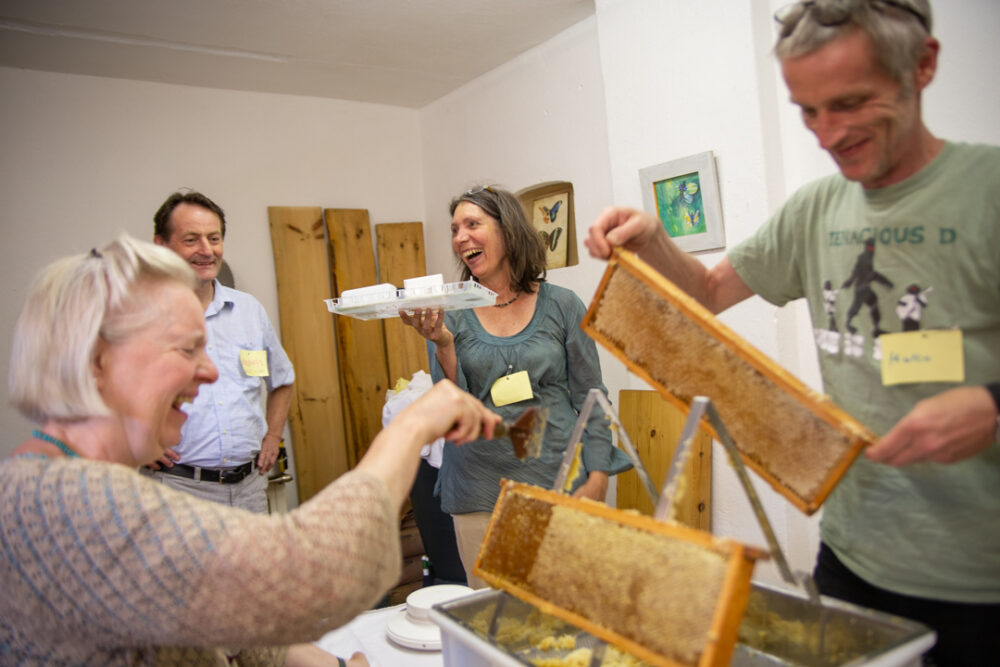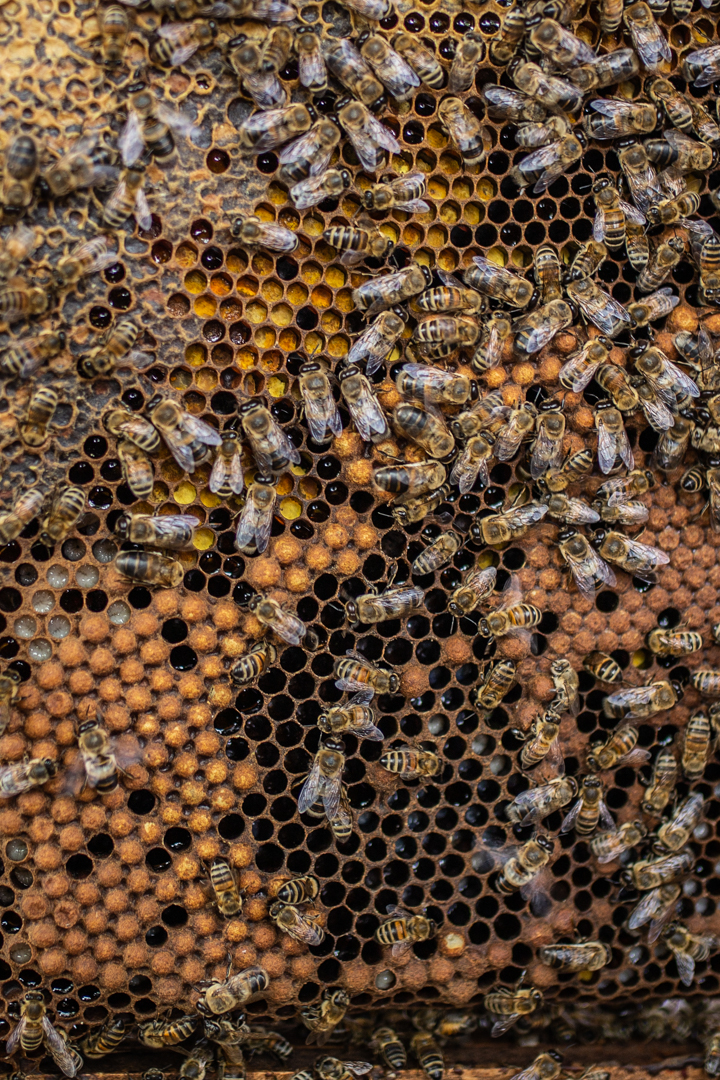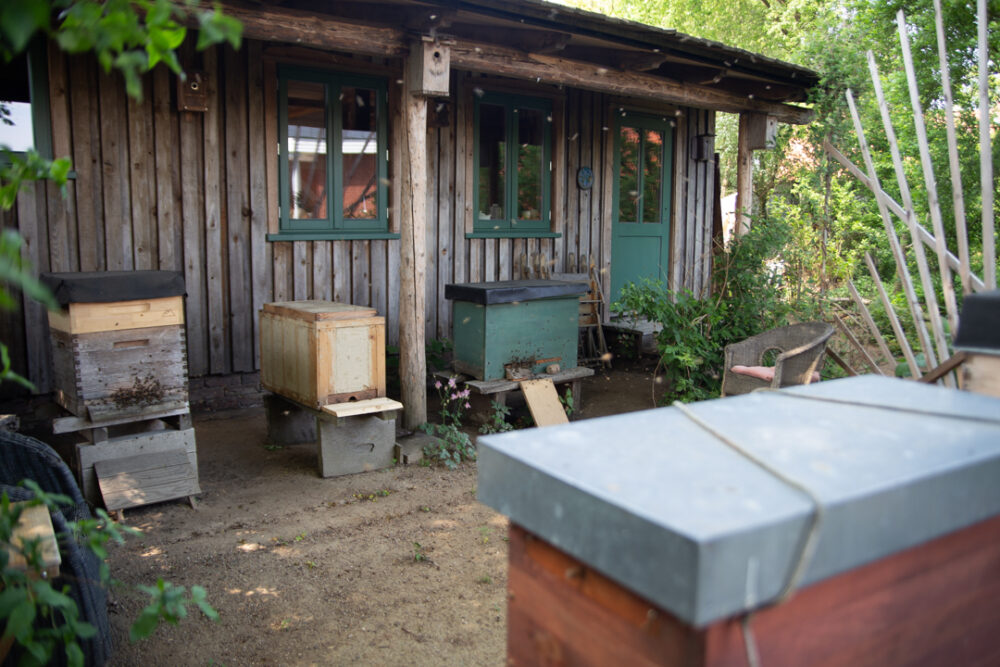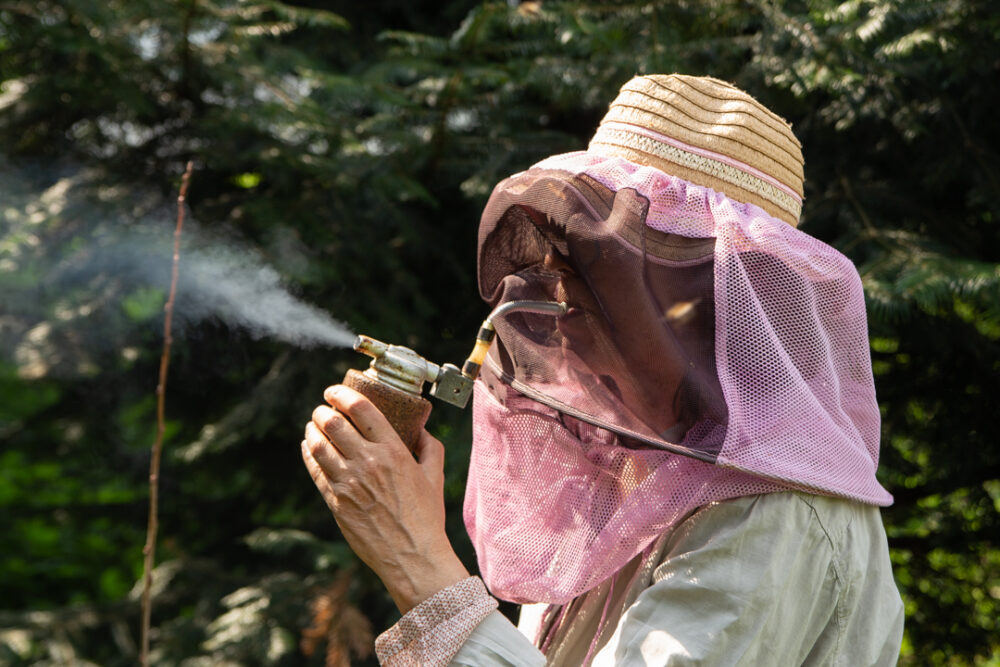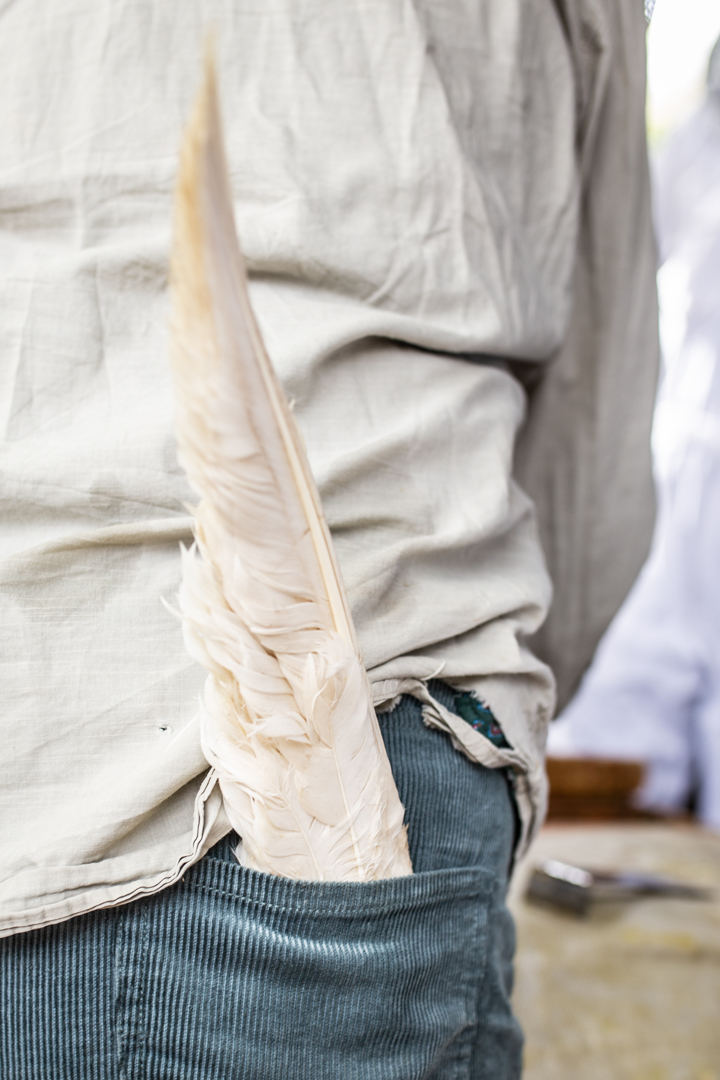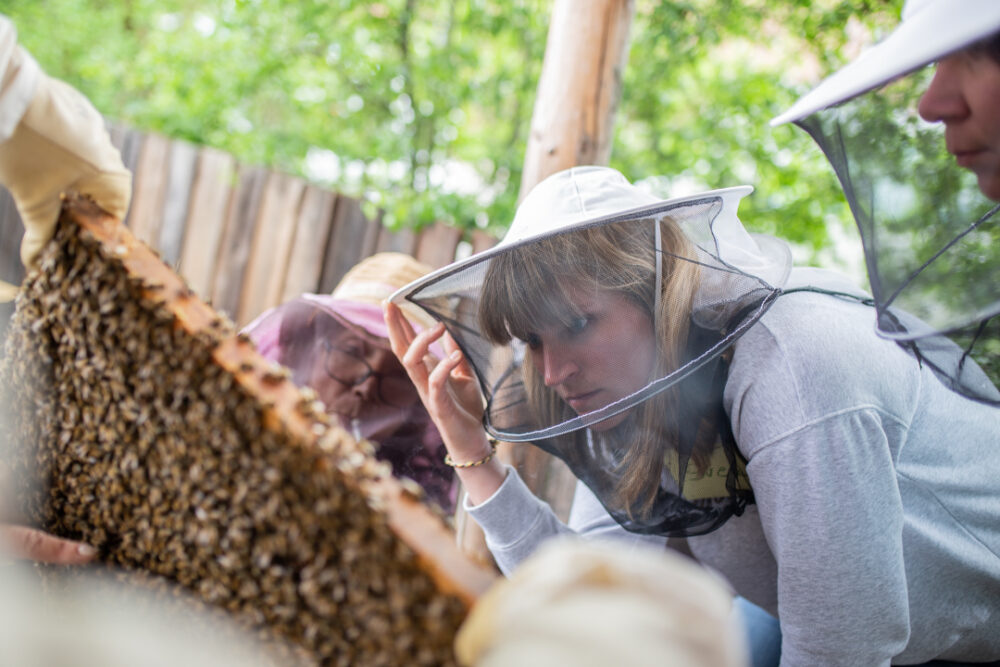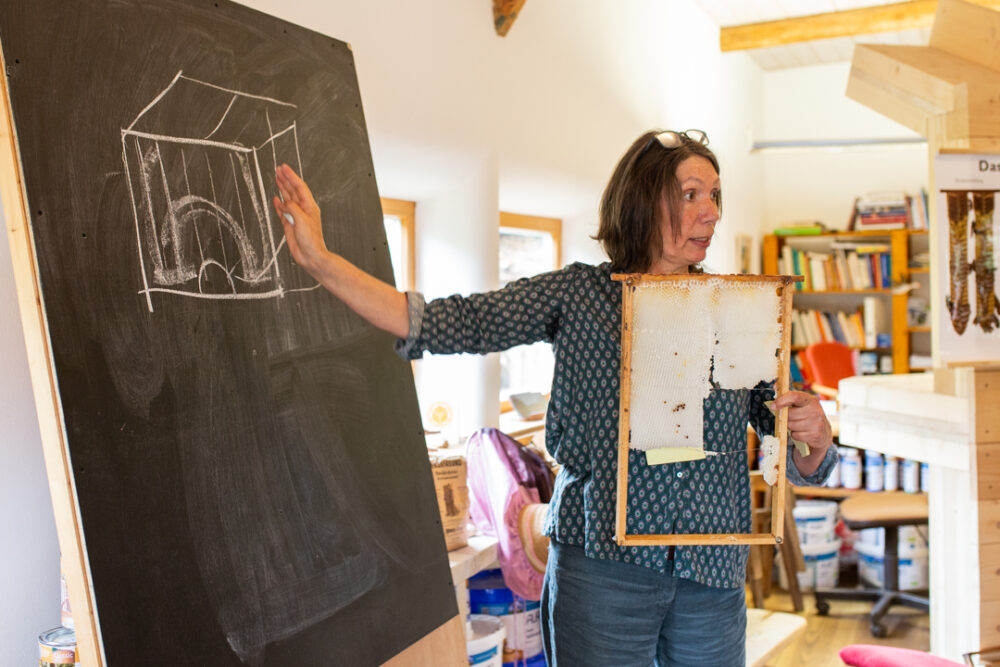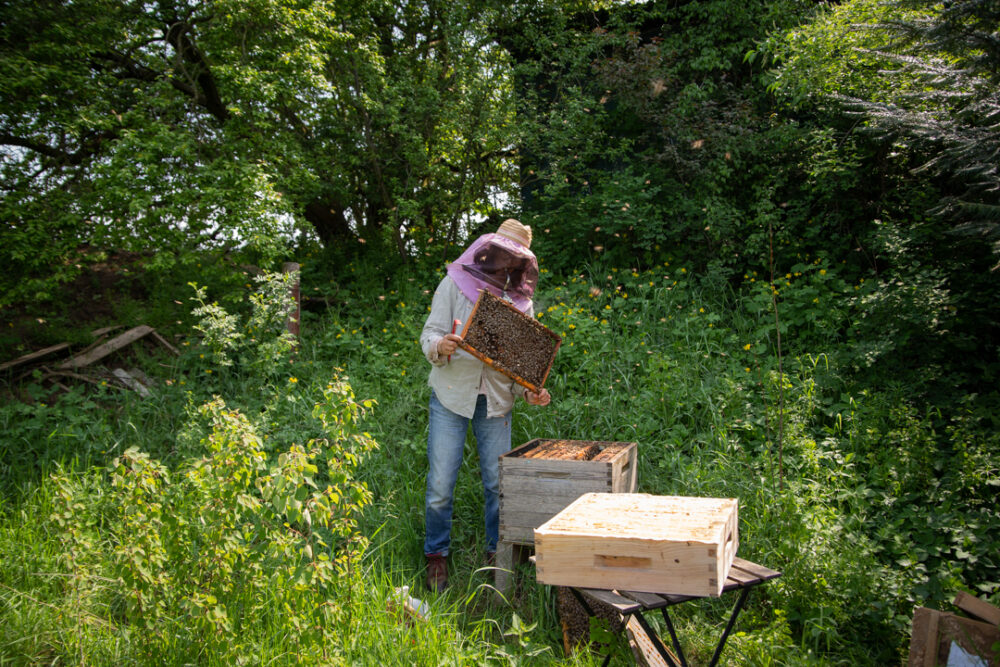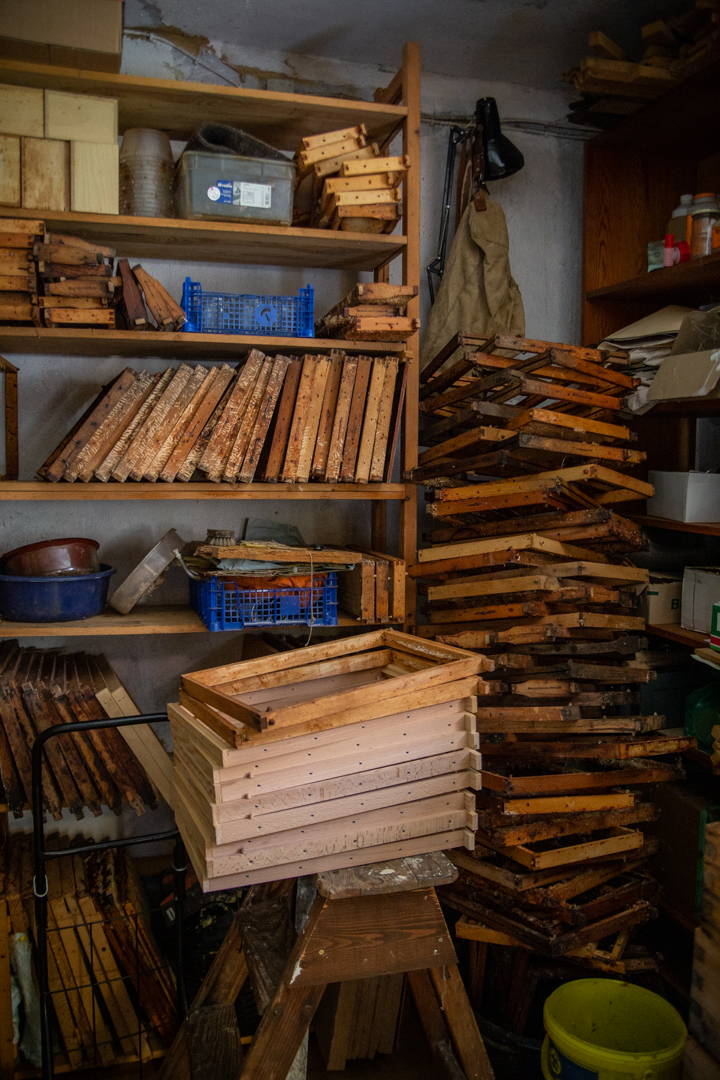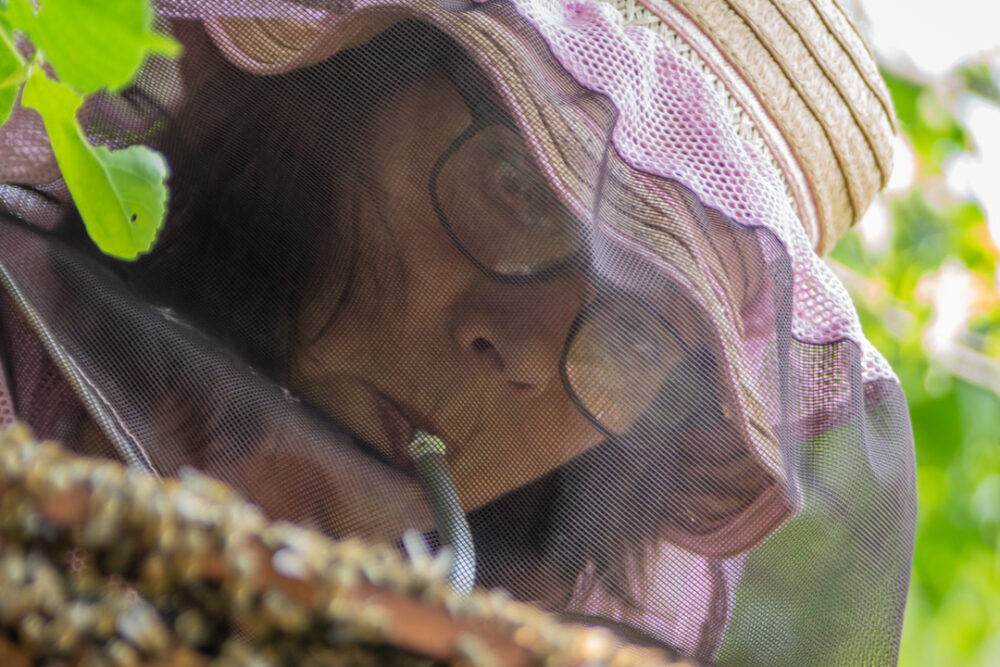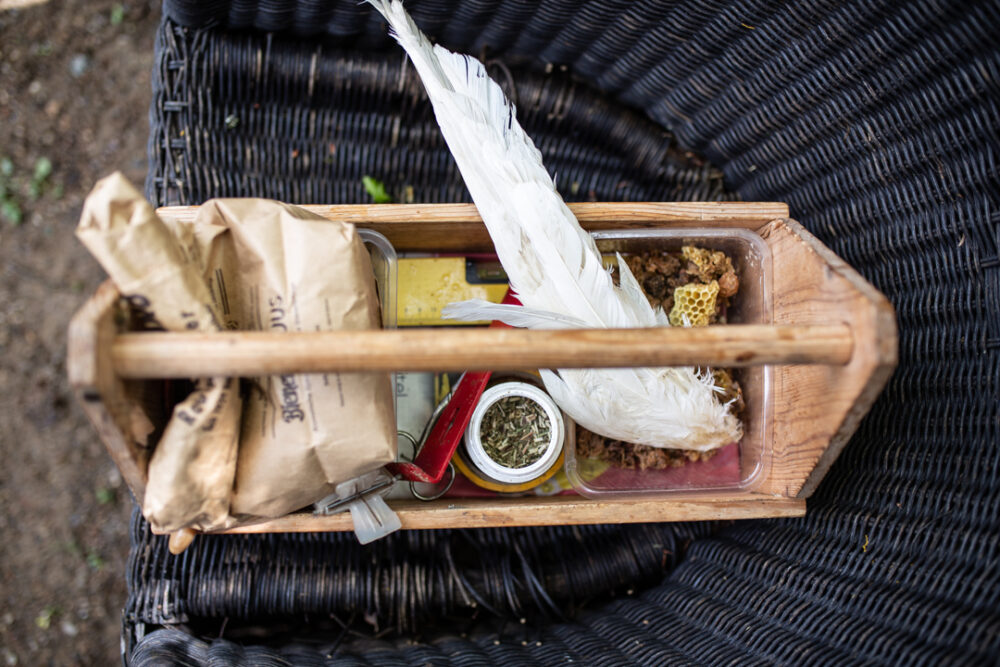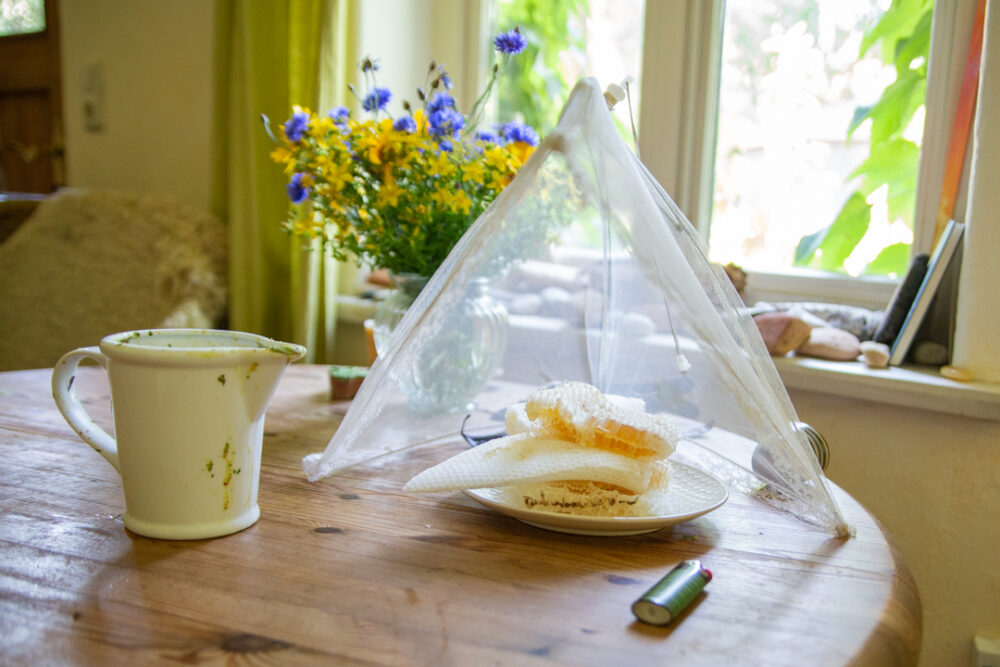Beekeeping according to nature (2019)
The importance of protecting endangered animal species from extinction and preserving the world’s biodiversity is undisputed. Although the honey bee is not threatened with extinction, it cannot survive without beekeepers. Their disappearance would have far-reaching consequences, as much depends on their pollination. Not only would honey disappear from our food list, but fruit and vegetable harvests would also decline drastically. It is estimated that 80 percent of flowering plants are pollinated by insects, 85 percent of which are pollinated by honey bees alone. Agricultural production would also suffer as a result, and we could be at increased risk of disease due to impaired nutrition and a lack of vitamins. Conventional beekeeping, which is geared towards high yields, harms the bee population in addition to other environmental influences such as climate change, large-scale monocultures and agrochemicals.
Humane beekeeping offers honey bees a natural environment. Using traditional craftsmanship, tried-and-tested tools and in harmony with nature, beekeepers create a natural habitat for the small animals and make beekeeping sustainable and species-appropriate. Marina Kliewer from Lüneburg has been working in this way for a long time. In beekeeping courses, she passes on her extensive knowledge about the animals and natural beekeeping to interested parties.
©2025 Saskia Stöhr Fotografie All rights reserved. Saskia Stöhr phone: +49 162 4706933 email: fotografie@saskiastoehr.de imprint privacy policy
